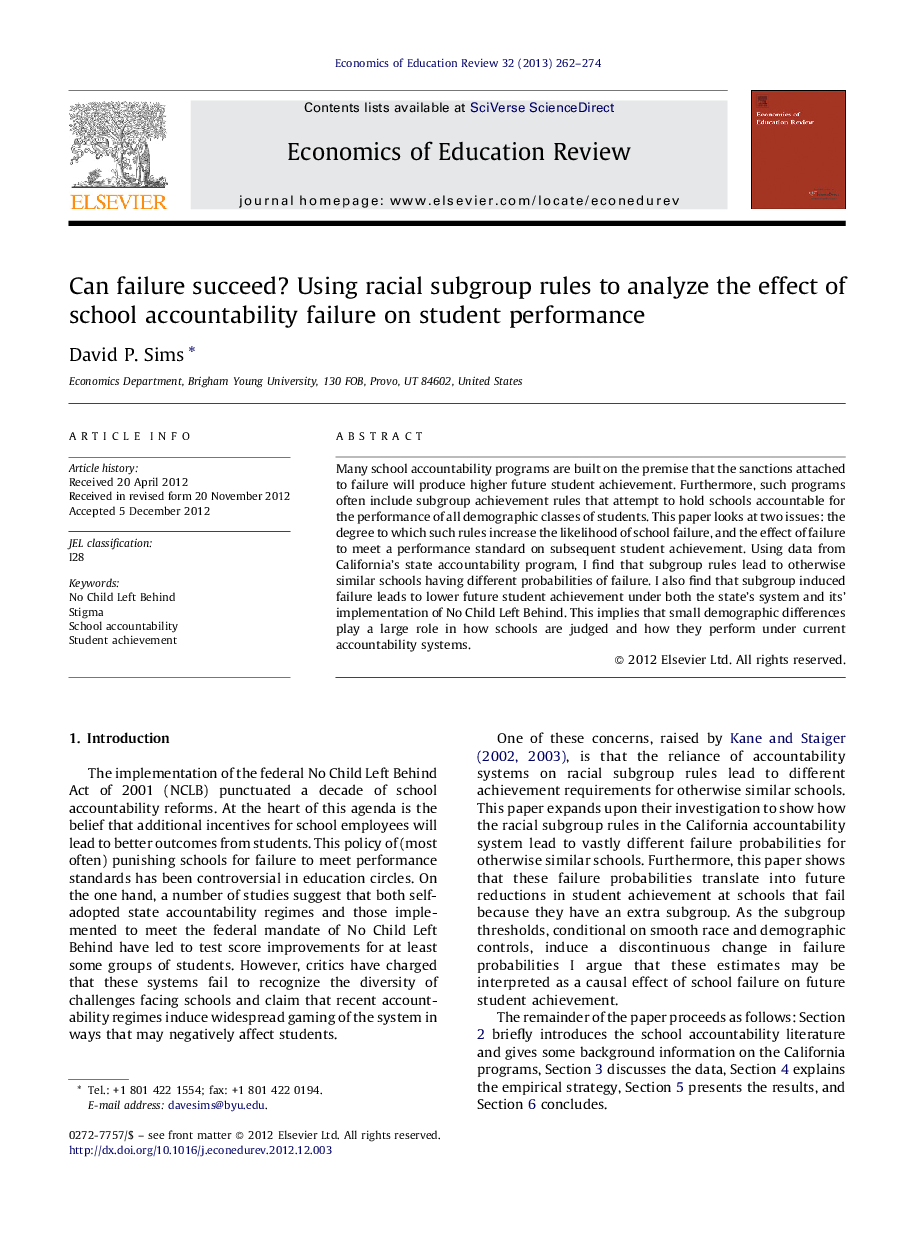| Article ID | Journal | Published Year | Pages | File Type |
|---|---|---|---|---|
| 354557 | Economics of Education Review | 2013 | 13 Pages |
Many school accountability programs are built on the premise that the sanctions attached to failure will produce higher future student achievement. Furthermore, such programs often include subgroup achievement rules that attempt to hold schools accountable for the performance of all demographic classes of students. This paper looks at two issues: the degree to which such rules increase the likelihood of school failure, and the effect of failure to meet a performance standard on subsequent student achievement. Using data from California's state accountability program, I find that subgroup rules lead to otherwise similar schools having different probabilities of failure. I also find that subgroup induced failure leads to lower future student achievement under both the state's system and its’ implementation of No Child Left Behind. This implies that small demographic differences play a large role in how schools are judged and how they perform under current accountability systems.
► Racial subgroup rules mean similar schools face different accountability failure probabilities. ► Failure to meet an accountability objective leads to lower subsequent student performance. ► Failure effects appear to be reinforced over time.
